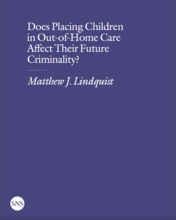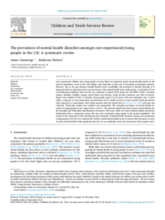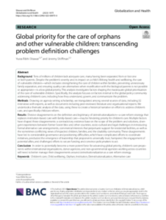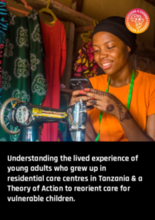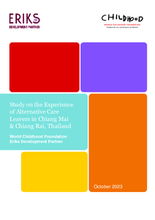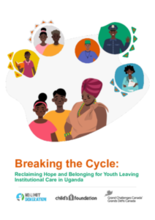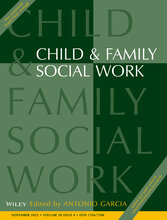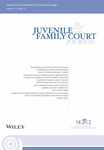Displaying 61 - 70 of 771
This report draws 14 lessons from academic research on the effects of out-of-home care on subsequent criminality. Most of the studies references in this review of based in Sweden.
This study reviewed the prevalence of mental health disorders among Looked After Children in the UK.
This global systematic review incorporated a comprehensive search of available literature from 1990 and captures the extant literature relating to process evaluations for interventions which address care-experienced children and young people’s mental health and well-being, and is one of the first syntheses of process evaluations in social care.
This analysis investigates factors shaping the inadequate global prioritization of the care of vulnerable children.
This mixed-methods study collects survey data from 253 adults involved with vulnerable children in Tanzania and narrative data from 31 young adults who experienced residential care during their childhood. The research fills a gap in the literature about the lived experiences of children in institutional care and the impacts of this type of care on their lives.
The purpose of this study is to explore how growing up in private residential care in Chiang Mai and Chiang Rai provinces of Thailand has affected children’s well-being over time. The research provided an important opportunity for young people to describe and analyze their experience, as well as make their own conclusions and recommendations.
The objective of this webinar was to present the best practices learnt in the implementation of the youth wellbeing project which focused on integrated mental health and wellbeing support for youth and particularly young people with lived experience of care.
The study's main themes were establishing the need for residential homes for children (RHCs), RHCs not being an ideal family environment and RHCs as respite. Family marital problems, poor financial situation, stigma attached to some children in care, abusive parents and a lack of suitable alternatives when families have a crisis were identified as key factors that impede DI implementation in Ghana.
The purpose of this nonexperimental quantitative study was to examine the responses of 18- to 24-year-olds (n = 83) who had been in out-of-home care, comparing early adolescent versus non-early adolescent placement, placement setting, and sibling accessibility on attachment.
This essay examines how child abuse and violence that occurred in the past have been conceptualised in one current redress process in an established democracy – the Swedish redress initiatives for historical abuse of children in out-of-home care.

